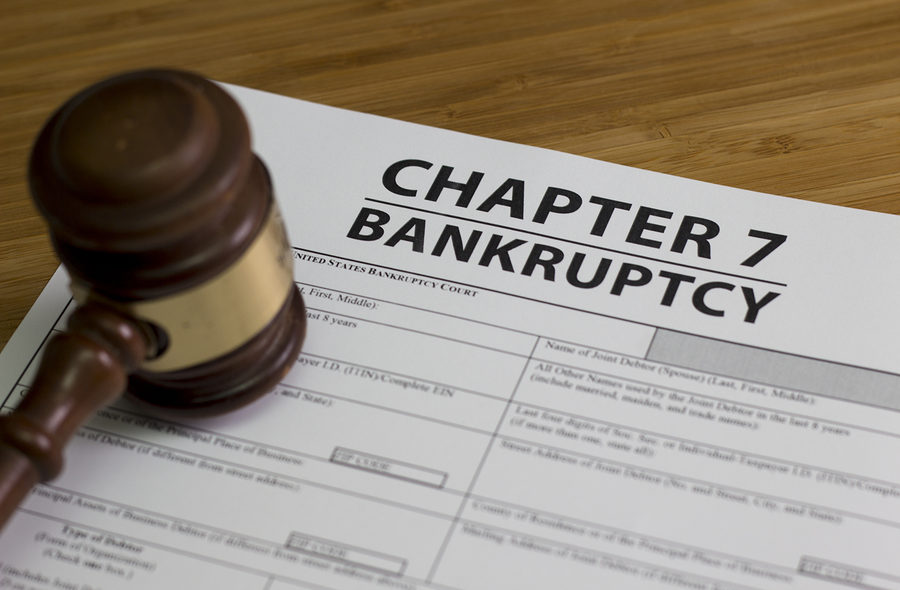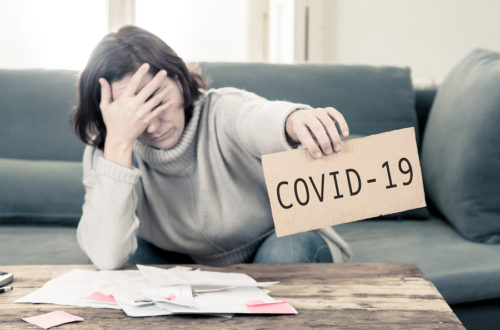If someone is considering filing for Chapter 7 bankruptcy, the path that person needs to take may not always be clear. While everyone’s situation differs in some respects, certain steps must be taken when it comes to proceeding with Chapter 7 bankruptcy.
Review Your Financial Situation
Before proceeding, it is always recommended that the filer sit down with an experienced bankruptcy attorney and go over what types of debt the person has, as well as what property would be protected by Florida’s bankruptcy exemptions.
If you are filing for Chapter 7 bankruptcy in Florida, you can use Florida bankruptcy exemptions to protect your property. In addition, residents are provided unlimited exemptions for homestead, household furnishings, retirement accounts, annuities, and the cash surrender value of a life insurance policy.
Certain debt, such as child or spousal support, recent tax debt and most student loan debt, cannot be discharged in a Chapter 7 bankruptcy. However, if the person has mostly unsecured debt, mainly credit cards, unsecured loans or medical debt, a Chapter 7 bankruptcy case may be the best method for that person to deal with his or her debt.
Bankruptcy Means Test
The next step is for the person to determine whether he or she is eligible to file for Chapter 7 bankruptcy. This eligibility determination is done through a means test. If the filer’s average gross income during the six months prior to filing is more than the median income for a similarly sized family in Florida, you may not qualify, unless expenses deducted from the filer’s income determine that the person qualifies under the means test. Just because someone does not qualify under the means test does not mean bankruptcy is out of the question. It may mean that a Chapter 13 case needs to be pursued instead.
Prepare Bankruptcy Petition and Forms
The filer will need to complete a set of documents next before filing for bankruptcy. All of these documents are necessary for the court to be able to decipher the filer’s financial situation. In these forms, the person pursuing the bankruptcy will need to inform them about his or her property, debt, income, expenses and prior financial transactions. The filer will also need to provide information naming all of his creditors and list property exemptions, as well as what the filer intends to do about each of his or her secured debts. Additionally, the individual will need to disclose any property transactions that occurred up to 10 years before filing. All of these documents must accompany the bankruptcy petition itself, and these must be submitted to the court together before the case can proceed further.
The person filing for bankruptcy will need to pay the required filing fee at the time everything is submitted to the court. Many times, the filer may need help in paying the fee, and courts may split the payments into four equal installments. The person may also be able to apply for a fee waiver in the event he or she absolutely cannot pay anything, which will be determined by the bankruptcy court judge.
Automatic Stay Issued
Upon filing, the bankruptcy court will issue an automatic stay, which is an injunction putting a halt to collections actions involving the filer’s creditors, including legal collection proceedings and collections phone calls and communication.
Mandatory Credit Counseling
All bankruptcy filers must complete a required credit counseling course during the six months prior to filing for Chapter 7 bankruptcy. A list of these required courses can be found through the U.S. Trustee’s Office. Once the course is completed, the bankruptcy filer will need to submit a certificate of completion with the court. If this requirement is not met, the case could end up being dismissed.
Additional Documents Submitted to Bankruptcy Trustee
At this point, the bankruptcy trustee handles the matter. This person’s job is to review all paperwork, take nonexempt property to satisfy qualifying debt and to review all creditor claims. In addition to the forms required with the bankruptcy petition, the filer should also expect to turn in bank statements, paystubs, tax returns and any other documents the bankruptcy trustee requires in order to fully evaluate the filer’s situation.
Meeting of Creditors
After the petition has been filed, the filer will receive a notice from the bankruptcy court on when the meeting of creditors, also known as a 341 meeting, will take place. During this meeting, the filer will answer questions from the trustee under oath regarding his or her finances and anything submitted in the bankruptcy form. Creditors can show up, if they wish, but normally this meeting is short in length, especially if the submitted bankruptcy forms are complete and accurate.
Nonexempt Property Liquidated
The bankruptcy trustee will evaluate whether it is worth seizing and selling the filer’s nonexempt property to distribute to creditors. Any money from these assets will be used to pay down qualifying, priority debts.
Secured Debts
In addition, the bankruptcy trustee will deal with the filer’s secured debts, which are debts that are otherwise backed by collateral. These debts can be handled in a number of ways. The filer can return the property to satisfy the debt, the debt can be redeemed by paying the creditor what it is worth or reaffirmed, meaning the filer agrees that he or she will still owe on it after the case is over.
Completion of Financial Management Course
Not only must the filer complete a credit counseling course before filing, but to receive a discharge, he or she must also complete a debtor’s education course. Upon completion of the course, the filer must submit a Form 423 Certification About a Financial Management Course with the court.
Discharge and Case Closed
Approximately three to six months after filing for Chapter 7 bankruptcy, the individual should successfully receive a bankruptcy discharge. The automatic stay will be lifted at this point and all qualifying debts discharged.
If you have questions on this topic or are in financial crisis and considering filing for bankruptcy, contact an experienced Miami bankruptcy attorney who can advise you of all of your options. As an experienced CPA as well as a proven bankruptcy lawyer, Timothy Kingcade knows how to help clients take full advantage of the bankruptcy laws to protect their assets and get successful results. Since 1996 Kingcade Garcia McMaken has been helping people from all walks of life build a better tomorrow. Our attorneys’ help thousands of people every year take advantage of their rights under bankruptcy protection to restart, rebuild and recover. The day you hire our firm, we will contact your creditors to stop the harassment. You can also find useful consumer information on the Kingcade Garcia McMaken website at www.miamibankruptcy.com.
Source: Nolo.com


